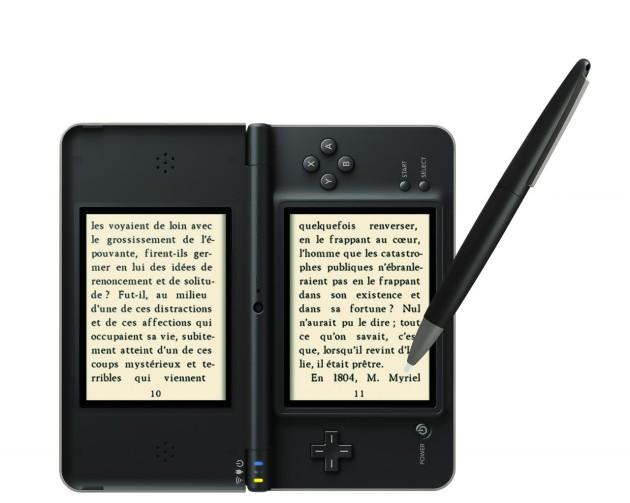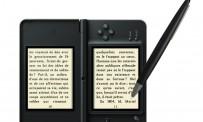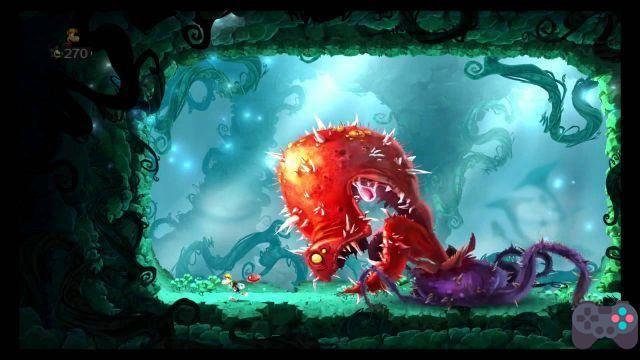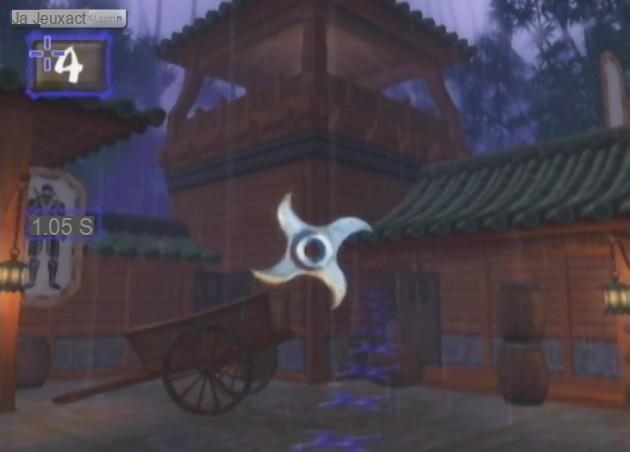 "Well, prince, what was I telling you? Genoa and Lucca have become the properties of the Bonaparte family. Also, I tell you in advance, you will cease to be my faithful slave, as you say, if you continue to deny the war and if you persist in defending any longer the horrors and the atrocities committed by this Antichrist... because it is the Antichrist in person, I am sure of it! Come on, hello, dear prince; I see that I scares you... Sit here and let's talk..." If like Pierre, who has letters, you have recognized the first lines of War and Peace, perhaps you will find little use for the latest production of Genius Sonority , which makes a point of making available to the general public 100 classic works – and free of copyright – in more or less complete versions. French literature is obviously largely represented in this sum of beautiful words, and more particularly the heroes of the 15th century. Champions in all categories, Balzac, Hugo and Zola appropriate between them XNUMX% of the catalog and crush a reduced foreign competition to a trickle. This is the first criticism that we can address to Gallimard, partner of the product, which places us here two Raymond Radiguet but nothing by Shakespeare, four Dumas but not a single Greek philosopher, The Odyssey being the only ancient work of the panel. Despite these few unfortunate omissions, inevitable when summing up literature to a hundred works, the national publisher limits the breakage, especially since the "classic" nature of the titles offered is indisputable.
"Well, prince, what was I telling you? Genoa and Lucca have become the properties of the Bonaparte family. Also, I tell you in advance, you will cease to be my faithful slave, as you say, if you continue to deny the war and if you persist in defending any longer the horrors and the atrocities committed by this Antichrist... because it is the Antichrist in person, I am sure of it! Come on, hello, dear prince; I see that I scares you... Sit here and let's talk..." If like Pierre, who has letters, you have recognized the first lines of War and Peace, perhaps you will find little use for the latest production of Genius Sonority , which makes a point of making available to the general public 100 classic works – and free of copyright – in more or less complete versions. French literature is obviously largely represented in this sum of beautiful words, and more particularly the heroes of the 15th century. Champions in all categories, Balzac, Hugo and Zola appropriate between them XNUMX% of the catalog and crush a reduced foreign competition to a trickle. This is the first criticism that we can address to Gallimard, partner of the product, which places us here two Raymond Radiguet but nothing by Shakespeare, four Dumas but not a single Greek philosopher, The Odyssey being the only ancient work of the panel. Despite these few unfortunate omissions, inevitable when summing up literature to a hundred works, the national publisher limits the breakage, especially since the "classic" nature of the titles offered is indisputable.
The words to read it
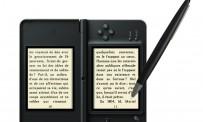 There is no shortage of classics in family libraries, many of which have not been opened for many years. Genius Sonority therefore had to find a way to seduce dormant readers. Make no mistake, if you hate reading, if you haven't touched the cover of a book since graduating and the free dailies seem surprisingly dense to you, 100 Classic Books won't convert you to the cause. literature, despite its theoretical accessibility. The user is invited to hold his DS vertically, to read on both sides and to leaf through his novel of the day while playing with the stylus. The format of the console is hardly conducive to editorial display, the works here unfold over very brief pages. The thin paragraph quoted in the introduction of this text thus extends over two full screens of DS Lite, and you will have to click a good many times in the lower right corner of the touch screen to rally the saving word "End of page 11757". And if you opt for the largest font size of the two available, you will only get out of the narrative river imagined by Tolstoy on page… 17867! This construction has a quality: the reader, who only spends a few seconds on each page, has the feeling of advancing at breakneck speed. The layout of the works nevertheless suffers seriously from this miniature format, which makes it easier to read the words. but paradoxically complicates the understanding of the text. Unable to have a broad vision, forced to click continuously, the reader can easily lose the thread of the story. Plays or poetry suffer the most from these formal constraints. So from Don Juan in the Underworld:
There is no shortage of classics in family libraries, many of which have not been opened for many years. Genius Sonority therefore had to find a way to seduce dormant readers. Make no mistake, if you hate reading, if you haven't touched the cover of a book since graduating and the free dailies seem surprisingly dense to you, 100 Classic Books won't convert you to the cause. literature, despite its theoretical accessibility. The user is invited to hold his DS vertically, to read on both sides and to leaf through his novel of the day while playing with the stylus. The format of the console is hardly conducive to editorial display, the works here unfold over very brief pages. The thin paragraph quoted in the introduction of this text thus extends over two full screens of DS Lite, and you will have to click a good many times in the lower right corner of the touch screen to rally the saving word "End of page 11757". And if you opt for the largest font size of the two available, you will only get out of the narrative river imagined by Tolstoy on page… 17867! This construction has a quality: the reader, who only spends a few seconds on each page, has the feeling of advancing at breakneck speed. The layout of the works nevertheless suffers seriously from this miniature format, which makes it easier to read the words. but paradoxically complicates the understanding of the text. Unable to have a broad vision, forced to click continuously, the reader can easily lose the thread of the story. Plays or poetry suffer the most from these formal constraints. So from Don Juan in the Underworld:
"When don Juan comes down
said towards the sustained wave
rain,
And when he had given
his obol to Charon,
A dark beggar,
proud eye like",
 And then we turn the page. Without wanting to play the extremists, Baudelaire's words hardly flourish in such a setting (and thank you for the abominable caesura). But lovers of beautiful letters hardly seem targeted by a title that accompanies the reading of a background sound as synthetic as it is kitsch. Crackling of a beautiful outbreak, airport or railway atmospheres, orchestral flights on the low-end keyboard or song of the cicadas, all of this fits abominably badly with Phèdre or Les Misérables. It is also regrettable that this product intended for the "general public" is content to deliver the texts in their raw state. For less than thirty euros, we naturally did not expect to benefit from a critical apparatus worthy of the Bibliothèque de la Pléiade, the prestigious collection of Gallimard editions, but 100 Classic Books is nonetheless surprisingly lacking in information. With the exception of a brief introductory note and a few lines devoted to the life of the author, the works are neither explained nor annotated, and do not even have a table of contents. A curious choice for this original but poorly designed product, which ultimately only saves space and weight, two arguments that could appeal to frequent travellers. We invite them to meditate on the words of Umberto Eco, interviewed a few months ago by Télérama: "Robinson Crusoe on his island would have had something to read for thirty years with a Gutenberg Bible. If it had been digitized in an e -book, he would have enjoyed it for all three hours of battery life." Or for about ten hours on his DS.
And then we turn the page. Without wanting to play the extremists, Baudelaire's words hardly flourish in such a setting (and thank you for the abominable caesura). But lovers of beautiful letters hardly seem targeted by a title that accompanies the reading of a background sound as synthetic as it is kitsch. Crackling of a beautiful outbreak, airport or railway atmospheres, orchestral flights on the low-end keyboard or song of the cicadas, all of this fits abominably badly with Phèdre or Les Misérables. It is also regrettable that this product intended for the "general public" is content to deliver the texts in their raw state. For less than thirty euros, we naturally did not expect to benefit from a critical apparatus worthy of the Bibliothèque de la Pléiade, the prestigious collection of Gallimard editions, but 100 Classic Books is nonetheless surprisingly lacking in information. With the exception of a brief introductory note and a few lines devoted to the life of the author, the works are neither explained nor annotated, and do not even have a table of contents. A curious choice for this original but poorly designed product, which ultimately only saves space and weight, two arguments that could appeal to frequent travellers. We invite them to meditate on the words of Umberto Eco, interviewed a few months ago by Télérama: "Robinson Crusoe on his island would have had something to read for thirty years with a Gutenberg Bible. If it had been digitized in an e -book, he would have enjoyed it for all three hours of battery life." Or for about ten hours on his DS.
